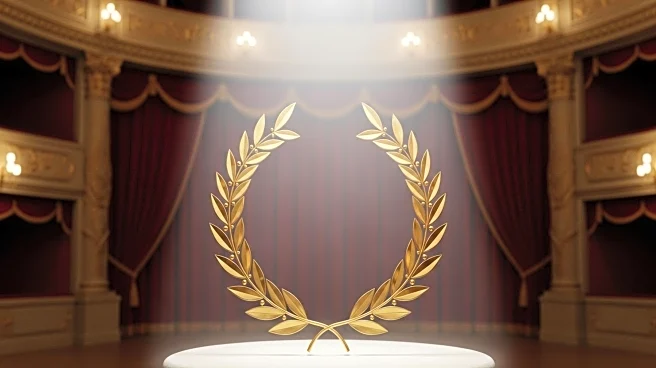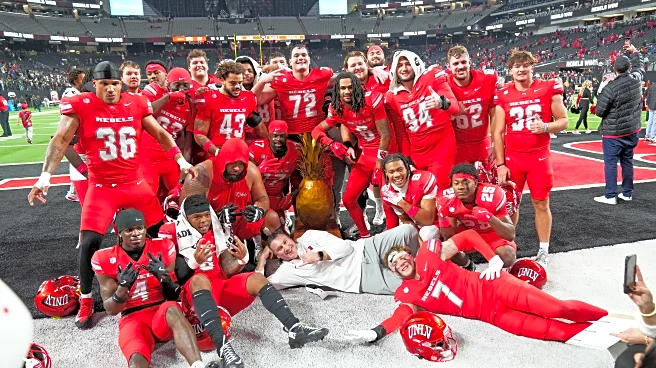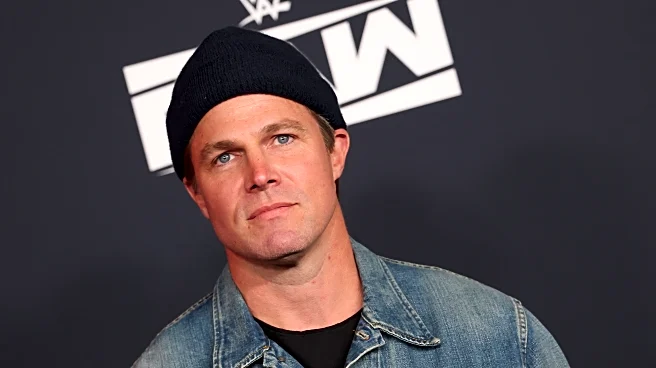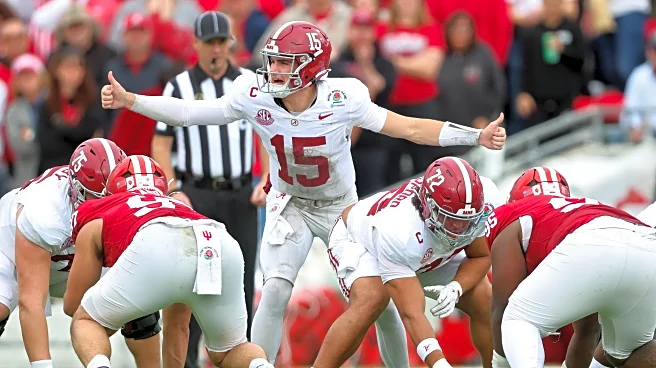What's Happening?
Paolo Sorrentino's latest film, 'La Grazia,' opened the Venice Film Festival, showcasing a more understated approach compared to his previous works. The film centers around Mariano De Santis, the fictional president of Italy, portrayed by Toni Servillo. Known for his flamboyant style, Sorrentino takes a different direction with 'La Grazia,' focusing on the internal struggles of a ceremonial leader. De Santis, a widower and devout Catholic, faces moral dilemmas, including a euthanasia bill and pardon petitions for murderers. The film examines themes of leadership, faith, and personal integrity, presenting a nuanced portrayal of a leader who rules with restraint.
Why It's Important?
The film's exploration of leadership and morality is significant in the context of global political dynamics, where leaders often grapple with the balance between personal beliefs and public responsibilities. 'La Grazia' offers a reflection on the nature of power and the ethical challenges faced by those in positions of authority. By portraying a leader who prioritizes his country's welfare over personal ambition, the film provides a counter-narrative to the populist tendencies seen in contemporary politics. This thematic focus resonates with audiences, encouraging discussions on the qualities of effective leadership and the importance of moral integrity.
What's Next?
As 'La Grazia' gains attention at the Venice Film Festival, it may spark further debate on the portrayal of political figures in cinema. The film's reception could influence future projects by Sorrentino and other filmmakers, potentially leading to more nuanced depictions of leadership. Additionally, the film's themes might inspire political discourse, prompting leaders and policymakers to reflect on their own approaches to governance. The festival's audience, including critics and industry professionals, will likely continue to analyze the film's impact and its relevance to current political climates.
Beyond the Headlines
Beyond its immediate narrative, 'La Grazia' delves into deeper ethical questions about the role of leaders in society. The film challenges viewers to consider the implications of power and the responsibilities that come with it. By highlighting the president's internal conflicts, Sorrentino invites audiences to reflect on the broader cultural and philosophical dimensions of leadership. This introspective approach may lead to discussions on the evolving nature of political authority and the values that should guide those in power.










